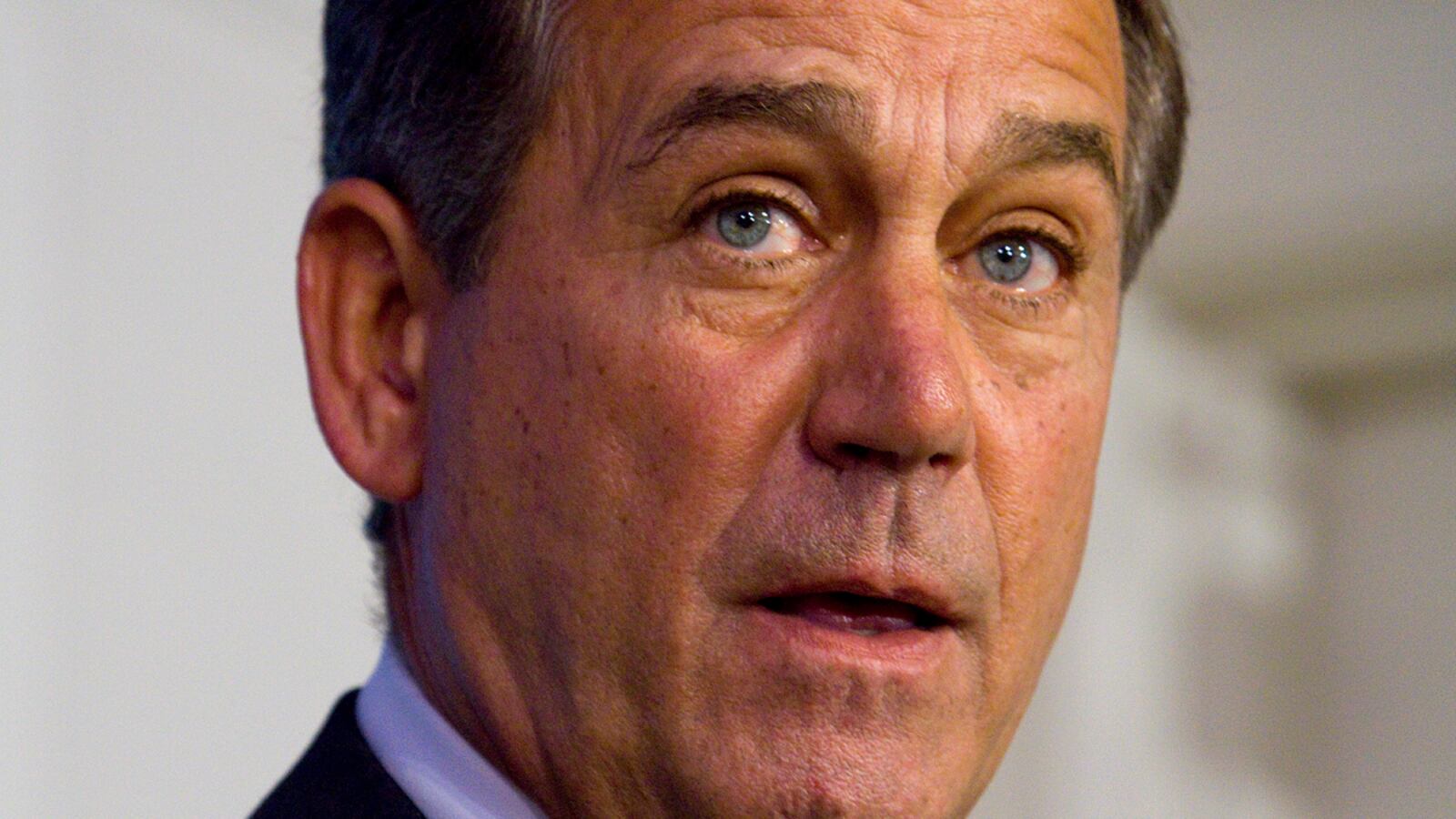House Speaker John Boehner came to the White House earlier this month bearing a letter from 150 economist pen-pals who ranged from some high-probity guys to some who aren’t. They agreed, as the Speaker’s website said, the nation needs immediate spending cuts to boost our economy and help create a better environment for job creation in America.
Have growth and employment slowed because there’s too much government spending? The Speaker’s letter thinks so:
Excessive government spending and borrowing is playing a central role in our economy’s ongoing struggle to create private-sector jobs – crowding out private investment, sowing uncertainty among small businesses, and eroding confidence that is critical to job growth.
In fact, many Democrats now subscribe to this “cut and grow” view. But is federal borrowing choking off the economy? There’s an easy way to tell, because the economy is hooked up to a cardiac monitor -- the interest rate on government debt. If interest rates were rising, we’d have evidence that government borrowing was purloining savings from productive, private users and we’d have to address it.
But they’re clearly not. The 10-year bond, which measures the compensation investors require over the period when debt is supposed the be suffocating us, yielded around 5 to 6 percent for much of the last decade, but only 3.75 last February. And by this week, the rate has fallen back to 3.0 percent. That’s anemia, not tachycardia.
The bond yield collapse gives the lie to the Speaker’s correspondents. Government spending isn’t crowding out investment, it’s substituting for it. And the handmaiden of crowding out, inflation, isn’t rising -- it’s at worst stationary, and possibly falling if raw materials prices have crested. But the Speaker and his allies have won the political battle over whether to cut spending now, reminding us that nothing can match the power of an idea whose time has come, even if the idea stinks.
What’s the alternative? It’s a focused, short-term stimulus combined with longer-term fiscal restraint. Markets aren’t worried about the U.S. government finding enough quarters in the sofa to manage its debts –that’s Greece, not us. Instead, they are worried that our costly longer-term promises to subsidize seniors’ medical care and pensions will break the bank. But we can balance these time horizons if we so wish.
First, the federal budget for both 2012 and 2013 should produce a borrowing requirement no larger than this year’s on a “cyclically-adjusted” basis – if the economy grows below its long-term trend (of about 2.6 percent) it can borrow more, and vice versa. Just that simple act of discipline might lead markets to believe the political system isn’t as dysfunctional as it seems.
Second, we should address the root cause of the household consumption problem the keeps growth slow – the residential housing crisis. The feds should break up Fannie Mae and let private “little Fannies” refinance existing “conforming” mortgages at their face value – regardless of housing market prices – at a federal financing window for anyone who has made their mortgage payment for the last 24 consecutive months.
Such a wave of refinancings would give households more confidence and certainty, and would create new income and demand through lower mortgage payments. And it’s an idea that derives from one by the former chairman of President G. W. Bush’s Council of Economic Advisors, no socialist he.
The two years’ “fiscal standstill” imagined here would give fiscal policy a chance to reset itself, particularly since it would include the 2012 election, which would allow the public to speak about taxes, Medicare, Social Security, and other forms of spending and tax expenditures. In fact, the best argument that we will not have a debt default this summer is that both parties want this issue to dominate that election. But the nation needs to make a decision on the trade-offs between taxes, Medicare, and everything else, and the 2012 election is the best and last chance to make and implement one.
There are some other policies that would help – a national infrastructure bank, for example, or an extended employer tax holiday on new hires. But right now they seem secondary. The question is a larger one – where are we headed?
Setting a direction through this thicket seems impossible in today’s bizarre partisan environment. But I can tell you why this program will work – it creates stimulus, takes minimal risks, provides some fiscal certainty in the short term, and doesn’t slash demand at a critical moment.
I don’t know if the 150 letter-writers can do the same. Their argument boils down to “cut spending and slash demand” while the economy weakens. If interest rates were high or rising, they could point to that as evidence for their case. But they’re low and falling instead, suggesting that the problem is not as the letter-writers define it.
Before we rush into a wave of fiscal slash and burn, they need to make their case.






